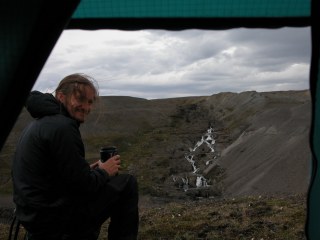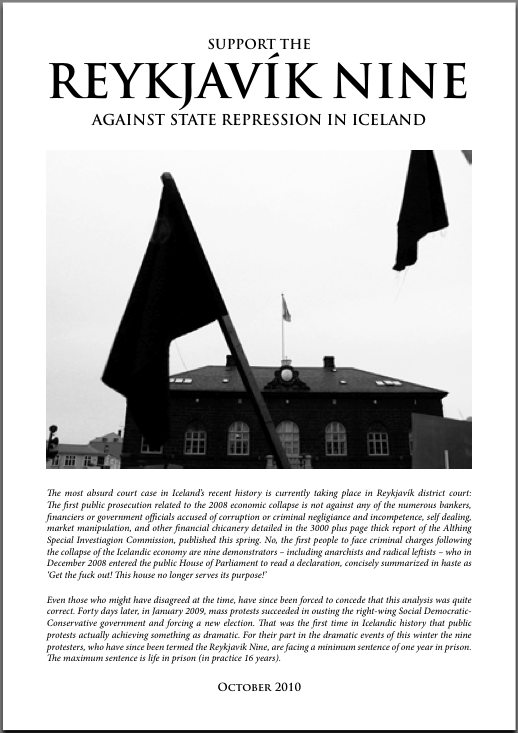Feb 11 2011
9 Comments
The Real Facts Regarding Mark Kennedy’s Infiltration of Iceland’s Environmental Movement
The recent spate of articles about the police spy Mark Kennedy that have appeared in the Guardian and elsewhere have greatly exaggerated the minor role of Kennedy in the Icelandic environmental movement to the point of claiming that he was a key figure pivotal in founding the movement. This may serve the immediate purpose of dramatizing the Kennedy saga but is in fact nonsense. Several weeks ago Saving Iceland sent detailed clarifications to the Guardian regarding the inaccuracies published in the paper. However, the Guardian has thus far not corrected their reporting, apart from a limited disclaimer in Amelia Hill’s article ‘Mark Kennedy played key role in forming green movement in Iceland’ where Hill states that “Saving Iceland […] disputes the level of Kennedy’s involvement.”
In other articles that are concerned with Mark Kennedy’s involvement with British groups the Guardian several times quotes British activists in saying that Kennedy did not act as a strategist or decision maker in their movement, but that he made him himself useful as a driver and an energetic facilitator in day to day logistics. One source is reported by the Guardian in even going so far to say that Kennedy was not considered the sharpest knife in the box. This would make the Guardians’ claims about his supposed vital role in Saving Iceland surprising to say the least. Read More







 Orissa is the most mineral rich state in India. It is green and fertile, a patchwork of tiny fields and thickly forested mountains with waterfalls tumbling over their red rocks. Like many of the world’s remaining areas of natural fertility, these mountains are largely populated by tribal peoples, which in India are called Adivasis – meaning literally ‘the original inhabitants’ – and are thought to be one of the oldest civilisations in the world. One quarter of the Orissan population are tribal, making it also the ‘poorest’ state in India according to the World Bank. But its figures judge well-being only by monetary exchange, and fail to mention that there has never been a famine recorded here, and that many Adivasis rarely use money, living in balance with the mountains, streams and forests which provide everything they need. In thanks for natures’ providence many Adivasi cultures worship the mountains on which they depend as Gods, and vow to protect their bountiful natural systems from damage. Some of the Orissan mountains are among the last ancient forest capped hills in India, thanks to the determination of tribal inhabitants against British colonial efforts to log them.
Orissa is the most mineral rich state in India. It is green and fertile, a patchwork of tiny fields and thickly forested mountains with waterfalls tumbling over their red rocks. Like many of the world’s remaining areas of natural fertility, these mountains are largely populated by tribal peoples, which in India are called Adivasis – meaning literally ‘the original inhabitants’ – and are thought to be one of the oldest civilisations in the world. One quarter of the Orissan population are tribal, making it also the ‘poorest’ state in India according to the World Bank. But its figures judge well-being only by monetary exchange, and fail to mention that there has never been a famine recorded here, and that many Adivasis rarely use money, living in balance with the mountains, streams and forests which provide everything they need. In thanks for natures’ providence many Adivasi cultures worship the mountains on which they depend as Gods, and vow to protect their bountiful natural systems from damage. Some of the Orissan mountains are among the last ancient forest capped hills in India, thanks to the determination of tribal inhabitants against British colonial efforts to log them.